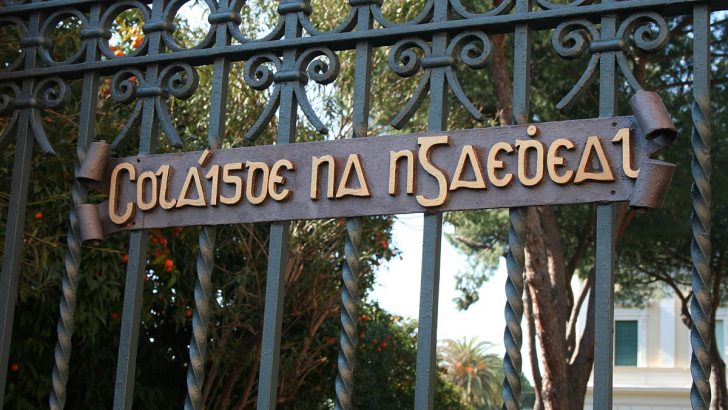Garry O’Sullivan
Justice delayed is indeed justice denied, and when someone has been wronged no redress really fixes everything. It is almost 14 months since the Irish Times – which in the minds of those who work there styles itself as the paper of record – published an article which falsely accused two young men of being expelled from Rome’s Irish College after being discovered in bed together.
The article was salacious in the extreme. It seemed crafted both to humiliate the two individuals involved and to inflict maximum damage on the Catholic Church. To plant the theme of hypocrisy firmly in the mind of the reader, it was contrived that this alleged incident occurred after a celebration of the anniversary of St Paul VI’s landmark encyclical Humanae Vitae. The sub-text was, of course, clear: the Catholic Church preaches stringent rules around human sexuality but doesn’t practise what it preaches.
In a depressing indictment of lazy journalism, the Irish Independent, the Irish Examiner and the Evening Echo repeated the story virtually verbatim the following day. In the trade they call this copy-and-paste operation ‘churnalism’.
Rumours
The newspapers clearly thought they were on safe ground to spread rumours since they didn’t mention the names of the individuals they were claiming were involved. It was a hollow thought: there are only a handful of Irish seminarians, and making false allegations against individuals in such a small group means they are easily identifiable.
Last Saturday marked a vindication for the two men involved when the Irish Times printed an apology and accepted the fact that their ‘story’ was, well, false.
It’s worth repeating the apology in full (see here).
A similar apology was repeated in the Irish Examiner and the Evening Echo the same day.
Only The Irish Catholic sought to get to the bottom of this whole sorry affair”
Good for Conor Gannon. It has been a long-time coming and evidently he has had to fight every inch of the way to vindicate his right to his good name. As the original ‘fake news’ spread like wildfire last year, people gleefully shared it across social media platforms and journalists rushed to repeat the allegations tittering with laughter.
I suspect the newspapers’ accountants and lawyers are rather less amused by this dismal case.
Only The Irish Catholic sought to get to the bottom of this whole sorry affair. Last May when the ‘story’ broke, this newspaper was the only one that uncovered the truth of it, finding that claims that the two seminarians were dismissed from the Irish College in Rome to be false, that claims of a sexual nature were false and that claims it happened after a conference were untrue as the conference never happened.
While some media outlets took down the story soon after it was shown to be false, the Irish Times stood over the story until Saturday’s apology. The Irish Independent has still not apologised.
At a time when faith in journalism has been damaged, this case raises piercing questions for the newspapers who were so quick to splash prurient and unfounded gossip on their pages.
How is it that journalists are willing to set aside the normal rules of fact-checking and verification of sources?
The truth is that Ireland is now awash with a type of agenda-driven journalism one of the motivations of is to try to paint the Catholic Church in as bad a light as possible. In this war, priests, seminarians and other people connected with the Church are open season and are denied the right to their good name.
Repetition
It is eight years since RTÉ defamed Fr Kevin Reynolds in the infamous ‘Mission to Prey’ Prime Time special. A damning report by the Broadcasting Authority of Ireland (BAI) found that in the programme “second-hand repetition of gossip appears to have been treated as corroboration”.
A report by Anna Carragher, a former head of BBC Northern Ireland, went even further finding that there was a culture of unchallenged assumptions about priests and the Church in RTÉ.
She raised concerns that the credibility of key sources was not sufficiently interrogated by the production team or by the editorial chain.
Overall, the report identified what it described as a culture of ‘groupthink’.
And here we are again: like Fr Reynolds, legal action was required to force an apology and admission that there “was no truth in and no basis for this allegation”.
Will we go along with a media culture where abuse, distortion, innuendo and uninterrogated rumours are the order of the day or will we say enough?”
The Irish Times will have to ask questions of itself about the editorial procedures that allow tittle tattle to be carried on the pages of a paper which seeks to be taken seriously as a source of news.
Catholics will also have to ask themselves questions about the type of journalism they support. Are we going to continue to facilitate a media that is relentless in attacking the Catholic Church to the extent that false reports that ruin reputations are carried? Will we go along with a media culture where abuse, distortion, innuendo and uninterrogated rumours are the order of the day or will we say enough?
Always remember, as US author Ziad Abdelnour puts it, “rumours are carried by haters, spread by fools and accepted by idiots”.
Read our coverage here.


 Rome's Pontifical Irish College
Rome's Pontifical Irish College 